By Lyndsey Hafer-Williams
Mar 30, 2019,
By Lyndsey Hafer-Williams
Mar 30, 2019,
The first thing to understand is the difference between the weather outside your window and global warming / climate change.
The National Oceanic and Atmospheric Administration (NOAA) which is an American governmental agency, paid for by our tax dollars and made up of the most respected scientists in the country, defines the difference:
“Weather is the day-to-day state of the atmosphere, and its short term variation in minutes to weeks. People usually think of weather as the combination of temperature, humidity, precipitation, cloudiness, visibility, and wind.
Climate is the weather of a place averaged over a period of time, often 30 years.”
Why does the distinction matter?
It matters, because if you erroneously decide that global warming is not occurring because it’s cold outside then you ignore the scientific evidence and gathered data of averages for the last 30 years.
In fact, extreme weather like the world is currently experiencing, be it freezing cold, harsh heat, flooding, or massive hurricanes is the proof that over time, our planet is warming to the point of extinction.
These extreme temperatures, be it frigid cold or fiercely hot, are weather, but our weather is being affected by climate change.
There was a significant study that was published by the United Nations Environmental Program (UNEP) Millennium Ecosystem Assessment Report for 2018. It chronicles, in detail, the past 50 years of ecosystem deterioration and describes the difficulties that we face in the not-too-distant future.
This 1,500-page report, mandated by Congress, discussed how our food choices directly impact our beautiful planet:
“Humans have made unprecedented changes to ecosystems in recent decades to meet growing demands for food, fresh water, fiber, and energy. These changes have helped to improve the lives of billions, but at the same time they weakened nature’s ability to deliver other key services such as purification of air and water, protection from disasters, and the provision of medicines…”
Keep reading, we have to face this stuff:
“Human activities have taken the planet to the edge of a massive wave of species extinctions, further threatening our own well-being. The pressures on ecosystems will increase globally in coming decades unless human attitudes and actions change.”
Here’s the takeaway:
What we eat matters. All life is connected. We must pay attention.
According to the leading scientific organizations all over the world there are ghastly effects happening on our planet, and they are directly linked to the consumption of meat and dairy.
Here’s the scoop:
Nutrient Pollution of Water and Coastal Dead Zones
What is it?
Streams, rivers, and creeks that run into the oceans are now heavily polluted with nitrogen and phosphorus. Besides industrial agriculture, the main culprit are manure ponds from Concentrated Animal Feeding Operation (CAFOs). These large factory farms use petroleum-based fertilizer on their corn (used primarily to feed livestock) and the fertilizer runoff (along with the absorption of manure from livestock) ends up in our streams, which in turn empties into our coastal environment.
Dead zones are just that – dead.
Stay with me here as it gets a bit complicated…
Basically, all those added nutrients cause excess growth of phytoplankton (algae) by fueling an explosion of blooms. Those blooms are then eaten by zooplankton that eventually sink and die off to the bottom of the ocean. All of that sinking of organic matter feeds bacteria, which decompose the material and use up much (or even all) of the oxygen in the process.
Here’s the problem: increased nutrient pollution leads to increased bacteria, which leads to increased oxygen consumption. When there is little or no oxygen left in the water, all marine life that needs oxygen to live cannot survive. These areas are called dead zones.
Why does it matter?
Nutrient pollution and resulting dead zones are the main threat to all US coastal waters and unfortunately, according to the Environmental Protection Agency (EPA), 55% of all American streams are now unsuitable for all aquatic life due to this pollution.
Did you hear that? Currently, over half of our streams cannot sustain life, not to mention the drain on our water supply and clean water shortages that we are seeing in the United States and all over the world. And the main cause is a hard-driving consumer market for meat in our bellies.
Overfishing, Bycatch, and Aquaculture
What is it?
Over the last few decades, the commercial fishing business has gone from small family-owned operations to huge fishing industries that employ gigantic ships owned by large corporations that have proven themselves to have little or no concern for conservation. This has resulted in a 90% decline in the abundance of many species of fish. Simply, our oceans are overfished.
As these large ships catch their intended fish they also capture many others that were unintended. This process is called bycatch, and it is causing serious environmental damage by draining our oceans. For every pound of target species harvested, as much as 20 pounds of bycatch is also killed and wasted, even critically endangered species like sea turtles.
Because there is such a decline in fish species, the industry has now turned to aquaculture. Basically, these are large facilities that have created specific conditions in coastal areas to host farmed fish. This accounts for 46% of all fish that are eaten worldwide.
Why does it matter?
The two biggest problems are that, when we lose fish from our oceans, many of the natural processes we need to sustain life on earth are imperiled. It’s a harsh cycle – the oceans are being drained of fish (which harms other populations that naturally feed from water, such as seabirds and marine mammals); so, industry builds more fish farms to help satisfy consumer demand. But, the farmed fish are fed wild-caught small fish, like herring, which is continuing to contribute to the waning stocks of our ocean’s fish.
And secondly, the large aquaculture facilities are adding nutrients and pollutants to the water and that results in the oxygen deprived, dead zones that I described above.
This is a direct result of the fishing industry’s path to supply the increased demand for seafood to eat.
Greenhouse Gas Emissions
What is it?
I always thought that greenhouse gas was just carbon dioxide, but there’s another one even more dangerous to our planet and that is methane. Methane is 20 times more effective at trapping heat in the atmosphere than carbon dioxide. The biggest source of methane in the world is the cow.
A cow’s digestive process naturally produces large amounts of methane. When the cow belches and farts it releases methane into our atmosphere.
Why does it matter?
Cows produce 501,593 metric tons of methane per one billion kilograms of beef produced for consumers. All of those belching, farting, and pooping cows that are bred and farmed for beef, release tremendous amounts of methane which is now trapped in our atmosphere and causing the planet to heat up at an enormous speed.
In fact, this is the number one cause of global warming and the resulting disastrous effects of climate change.
Simply put, this adds up to approximately 0.126 pounds of methane being produced for every hamburger eaten. On average, Americans eat three hamburgers a week, which is nearly 50 billion burgers per year. Think about all the hamburgers sold in just one day worldwide and then think of the huge amount of methane that was expelled in the creation of a quarter-pound piece of beef.
Soil Loss, Increased Need for Land
What is it?
According to multiple outlets, including the World Wildlife Fund, half (yes, half!) of all the earth’s topsoil has been destroyed over the last 150 years. There is growing speculation from the world’s leading scientists that we have approximately 60 years of productive soil left if we continue on the way we are. The biggest factor is the overgrazing of livestock.
The earth’s land (including the annihilation of our wildlife-sustaining rainforests) is also being used up at an alarming rate, to produce livestock for consumption, and to grow food for animals that are then eventually consumed.
Why does it matter?
The number one reason for the loss of our land is that conventional beef production takes up almost 65 square feet per quarter-pound of beef produced for consumption. We are raising cattle to feed an ever-ready public on acres of land that the earth cannot sustain.
Listen to this! It takes 1.75 acres to produce 375 pounds of meat, but it takes only half an acre to produce 37,000 pounds of plant based food! In other words, it takes a little over 1/2 an acre to feed someone a vegan diet, but takes 18 times that amount of land to feed a meat lover.
In fact, almost all of the destruction of our forests and wildlife habitats has been a direct result of feeding a meat-eating public. According to The World Bank, animal agriculture is responsible for up to 91% of Amazon destruction. In the US, an average person eats 200 pounds of meat per year. At that rate, there is simply not enough land on earth that can continue to supply the demand for meat in America.
Overpopulation and Feeding
What is it?
Overpopulation happens when the ecological footprint (how we live) is greater than the carrying capacity. That simply means that we, as a human race, are getting too many for our planet.
This is a sensitive topic, because historically we have been programmed from childhood to grow up, get married, and have children. However, the unsustainable ways in which we currently live and our levels of consumption are seriously threatening our children’s future on this earth.
There is also the mind boggling disparity between the starving, famine riddled, third world population and the overfed, overweight, food wasting, first world countries. You would never know it by looking at your average American, but there is a food shortage all over the world. In our fast food, instant gratification culture, it is almost impossible to imagine that there are children starving to death every single day.
A recent USDA study estimated that the average household wastes 25% of its purchased food. The study approximates that 35% of all food produced for people in the US is tossed into the garbage.
Why does it matter?
As we drain our natural resources, overfish our oceans, rapidly overpopulate the earth, and demand a meat and dairy rich diet, we are effectively killing off the human race and taking everything else down with us. The largest problem is that humans are the main contributors to rapid climate change. As the planet warms, major crops will not be able to handle the increasing temperatures, and at some point, there will be no food or water left for any of us.
That sounds dire, and it is.
There is a direct link to global warming and the production of meat and dairy for human consumption. By shifting to a plant-based way of eating we are causing fewer toxic chemicals to be released into our environment, reducing global warming emissions, and preserving our ocean resources.
Ok, my friend, I know that was a shit-ton of information and it is certainly not any fun to read about, hear, or even think about. But, I have some excellent news!
It’s not too late to turn this planet around, but we must act, and the consensus is that the best way to combat all of these scary problems that I have outlined above, is by switching to a plant-based diet full of whole foods, organic and locally sourced whenever possible.
What we eat matters and the food choices that we make on a daily basis have a huge impact on our environment. Even small changes can eventually add up to big gains for our beautiful planet.
My wife is a wildlife biologist and tries her best to save habitats, clean water and endangered species in our beloved Appalachian Mountains. Even she has said that her personal food choices can have a greater impact on our planet and dwindling wildlife than anything she can hope to do in her job.
My fervent hope in helping you to understand how our food choices affect our environment, is that you will begin to see how we are all interconnected in everything that we do. As we’ve just read, by choosing not to eat meat and dairy products we can have a profound effect on helping to minimize our footprint on our gorgeous planet. I don’t know about you, but I’m so happy that I can help heal our earth by eating all the plants.
Isn’t it beautiful that the very food that helps the body heal and thrive is the same food that will help the planet heal and thrive?
Everything is connected, indeed.
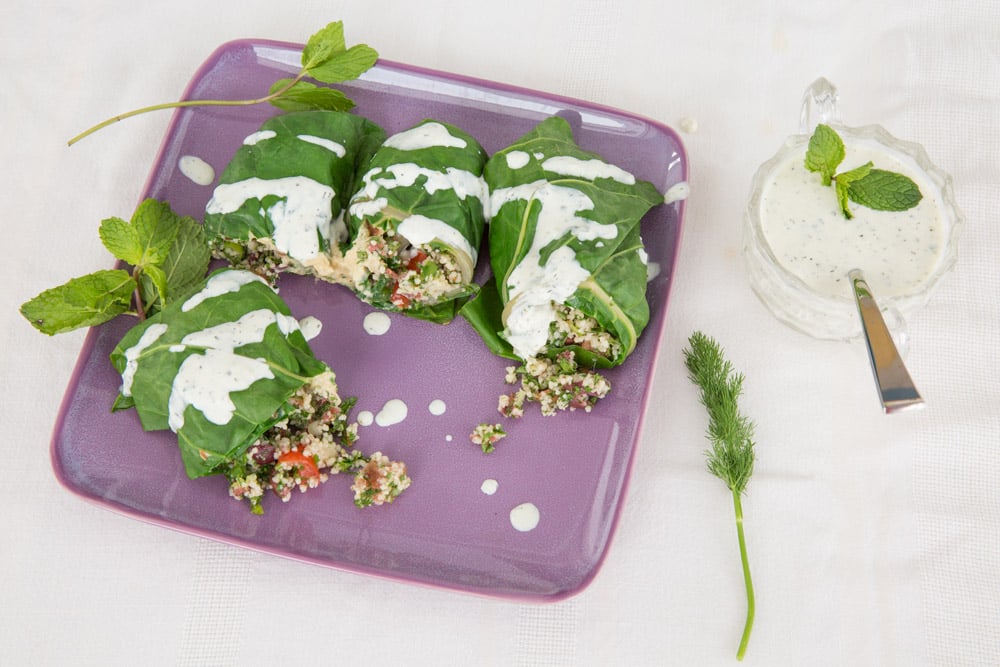
Ingredients
Dolmas Ingredients
- 1 bunch of chard, blanched (directions below)
- Hummus (see Notes for a recipe link)
- Dolmas Filling (recipe below)
- Tzatziki Sauce (see Notes for a recipe link)
Filling Ingredients
- 1 cup cooked grain of your choice
- ½ cup minced parsley (15 g)
- ½ cup tomatoes, finely diced (50 g)
- ½ cup Kalamata or other brine olives, pitted and finely chopped (40 g)
- 2 tablespoons fresh dill, minced
- 2 tablespoons fresh mint, minced
- 3 green onions, finely minced
- 2 garlic cloves, finely minced
- 2 tablespoons lemon juice
- ½ teaspoon salt
- ⅛ teaspoon black pepper (about 5 turns)
Instructions
Blanched Chard Instructions
- Cut the stems off from each Chard leaf, at the base.
- Place the chard leaves in a large mixing bowl and pour boiling water over them. Let them sit for about a minute, then take them out of the water with a pair of tongs, and place them onto a clean kitchen towel or a clean cloth to absorb any liquid. Carefully pat each leaf dry.
Filling Instructions
- In a medium-sized mixing bowl, mix the cooked grain, parsley, tomato, olives, dill, mint, green onion, garlic, lemon juice, salt and pepper until well combined. Store in the fridge until your Dolmas night.
Dolmas Assembly Instructions
- Lay each blanched chard leaf onto your cutting board and add some Hummus down the middle of each leaf, followed by some Dolmas Filling.
- Roll each leaf up as if rolling a burrito, tucking in the ends over and around the filling as you roll. If your chard leaf is large enough, you can slice it in half and make two dolmas out of it.
- Make as many Dolmas as you want and place them seam side down on your plate. Drizzle with Tzatziki Sauce before busting a move on those scrumptious rolls!

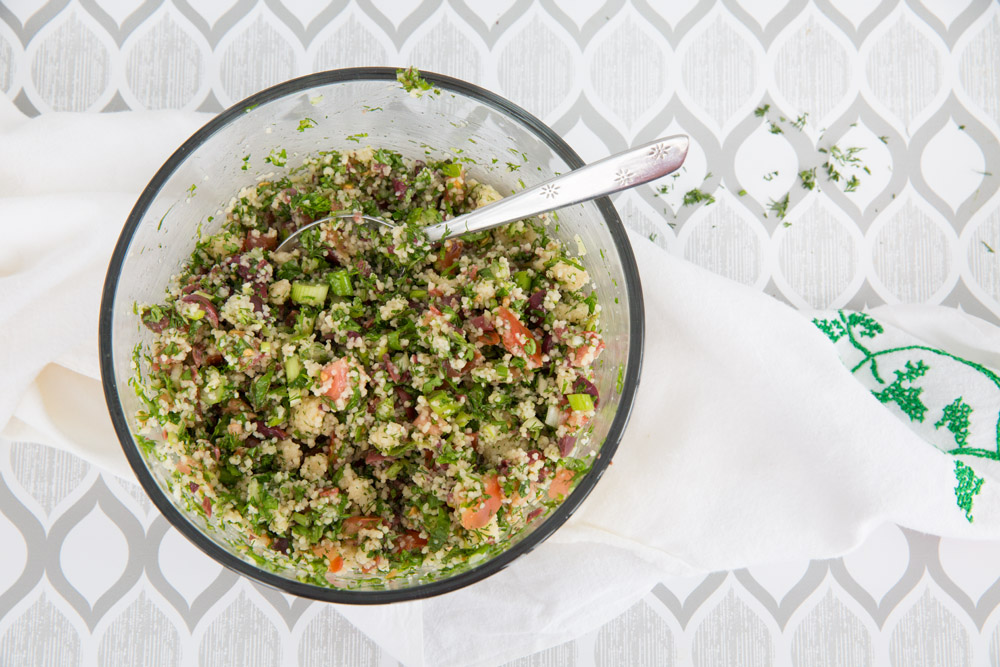

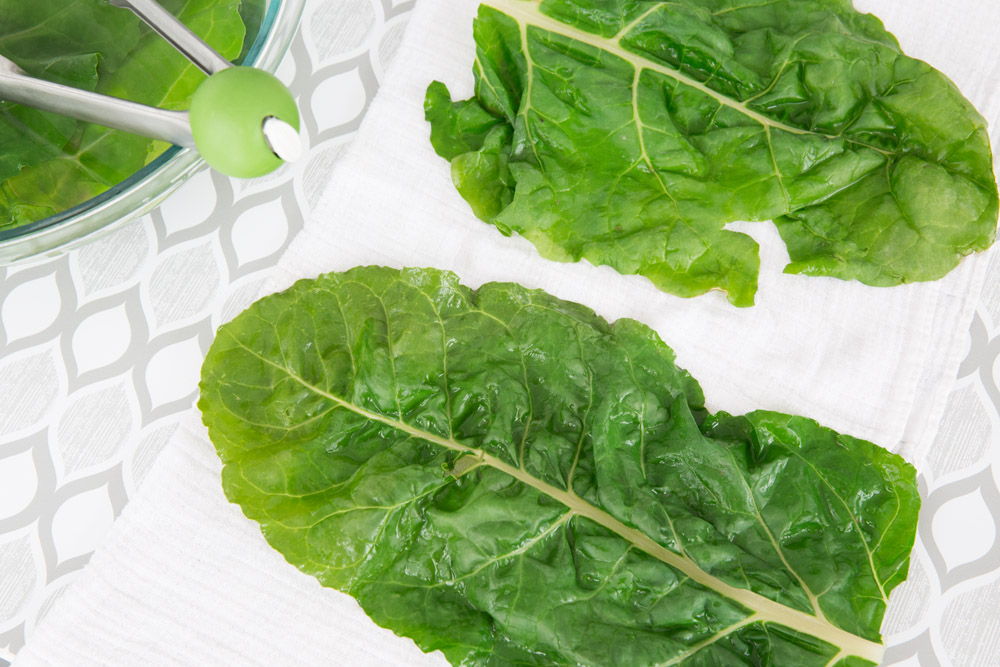
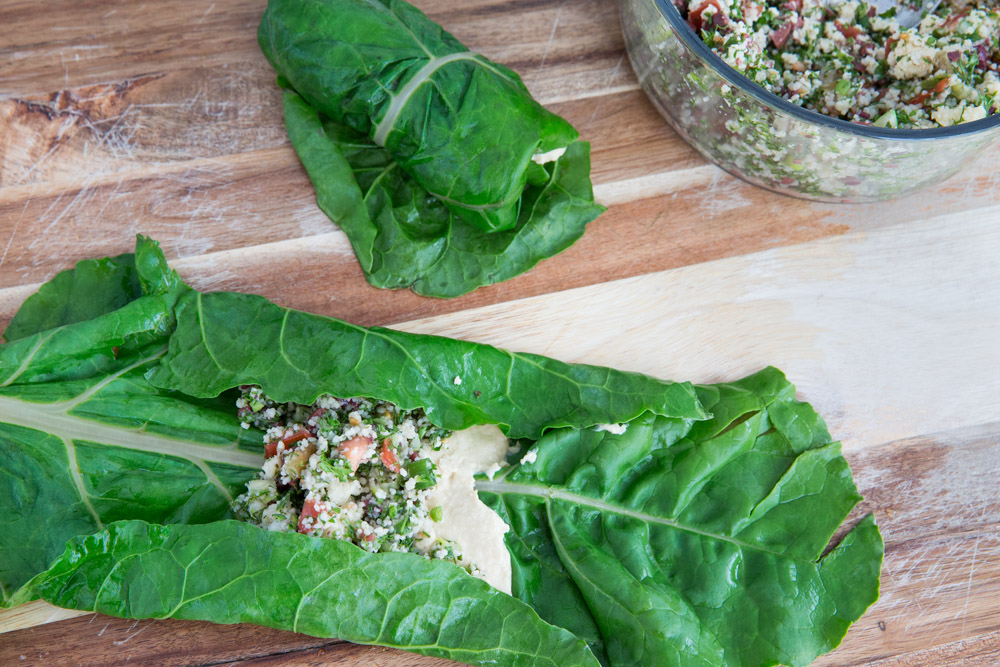
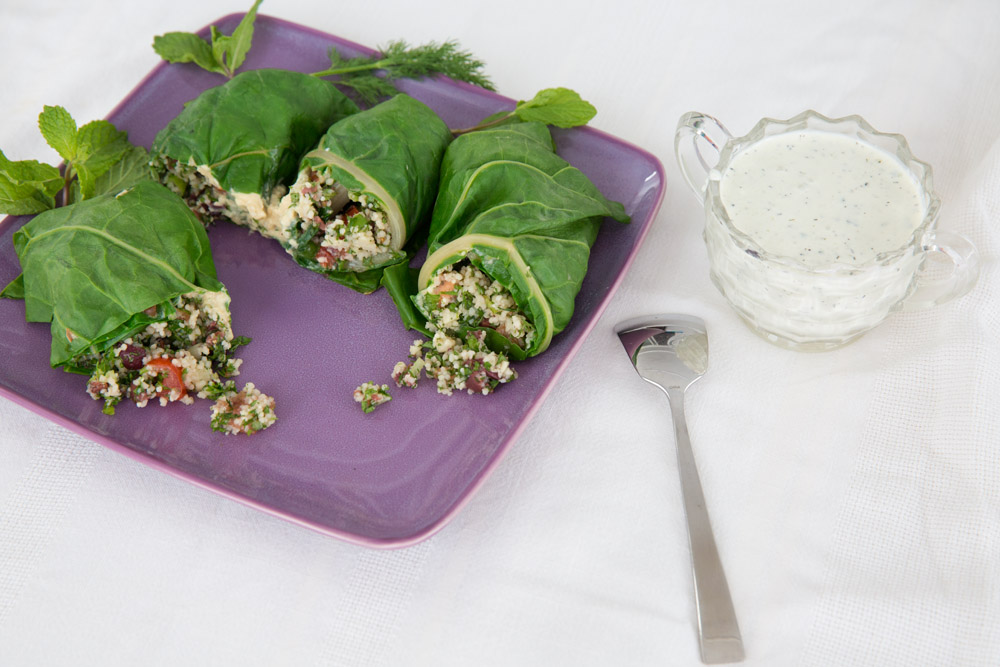
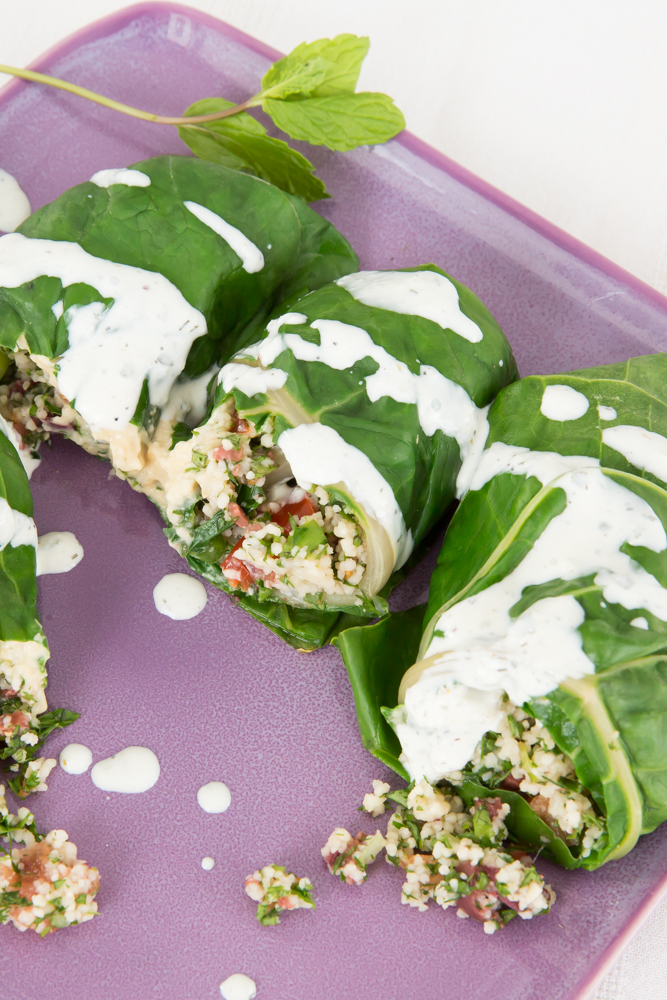
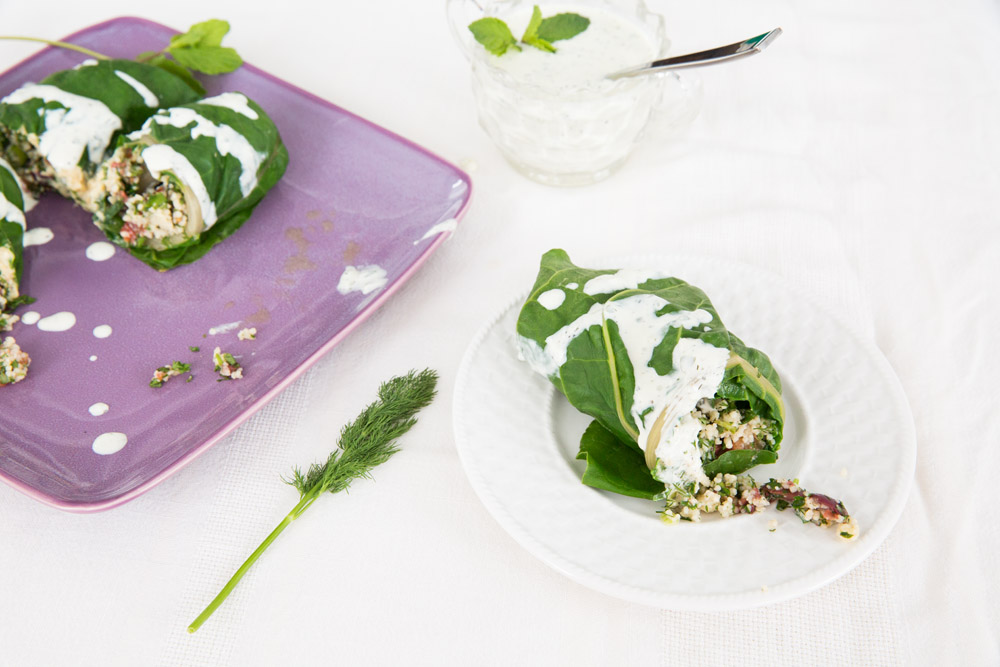
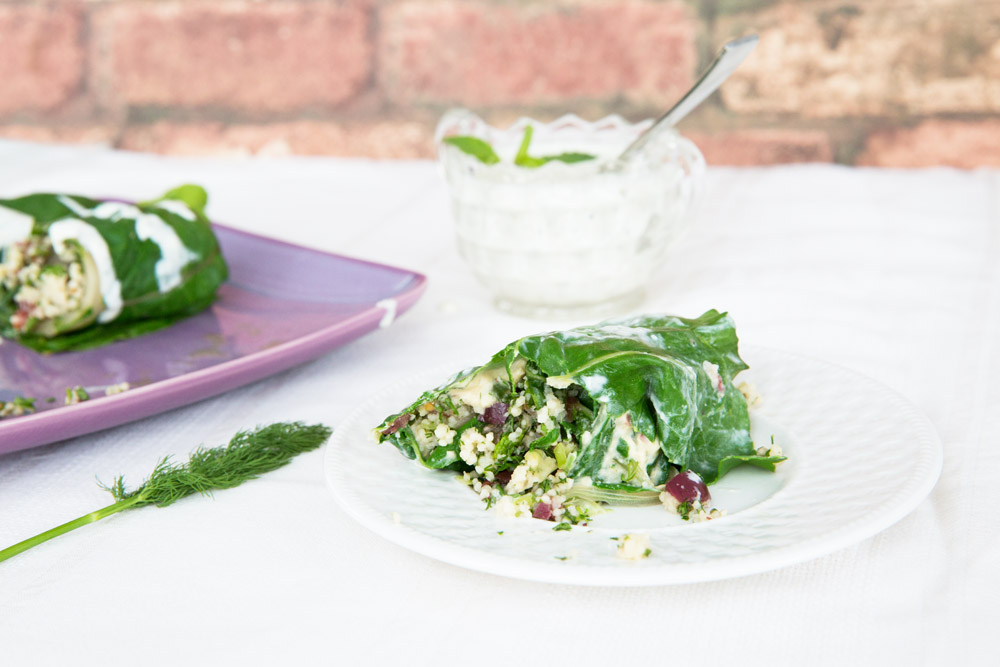
Wishing you a happy week. May it be filled with making loving choices for our planet.
XO
Molly
References
https://nca2018.globalchange.gov/
https://nutritionstudies.org/impact-of-food-choices-on-the-environment/
https://insideclimatenews.org/news/31052018/environmental-impacts-food-production-climate-change-meat-vegetarian-vegan-diets-global-warming-study
https://nutritionstudies.org/top-10-plant-based-research-and-news-stories-2016/
http://www.greenerchoices.org/eco-labels/
https://nutritionfacts.org/2017/12/05/meat-is-heat-the-effects-of-diet-on-global-warming/
https://drjoelkahn.com/environmental-impact-eating-vegan-just-one-day/
25 Comments
Leave a Comment
Love the food that loves you back
Get instant access to thousands of plant-based recipes and meal plans, no credit card or perfection required.

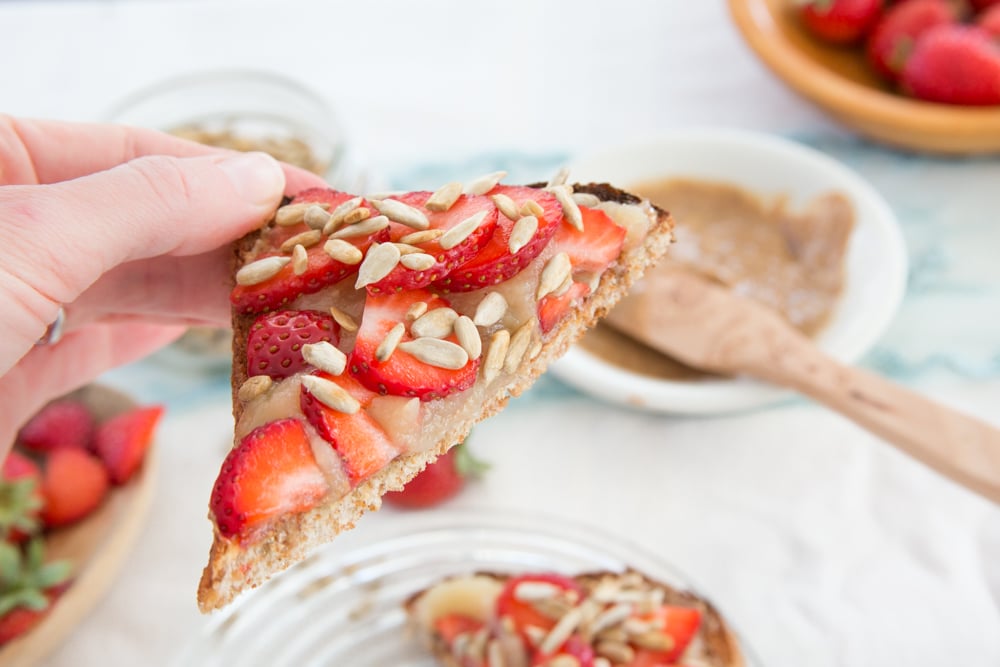

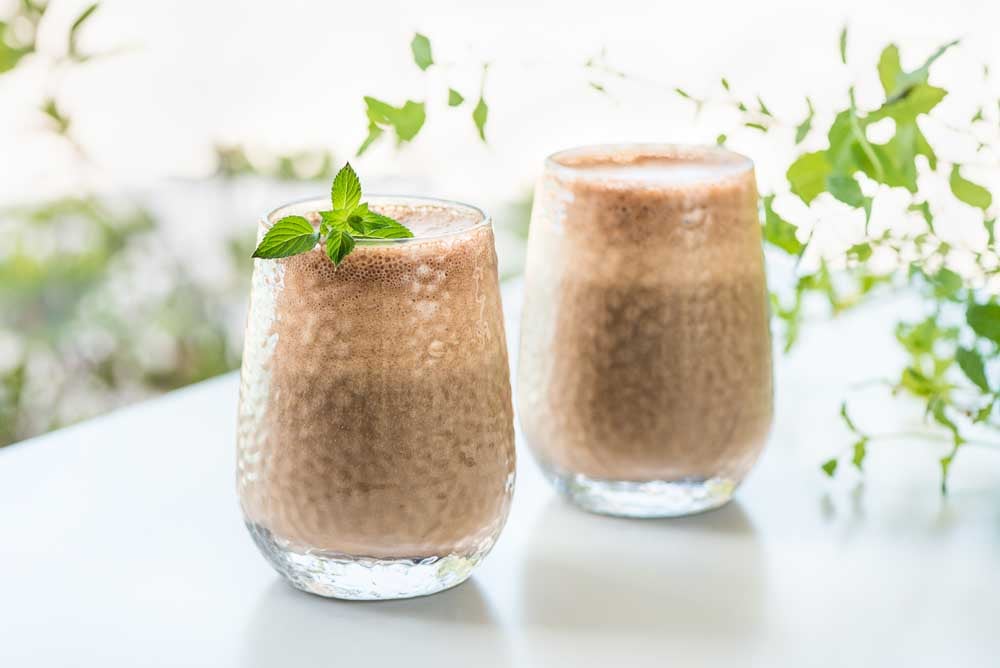
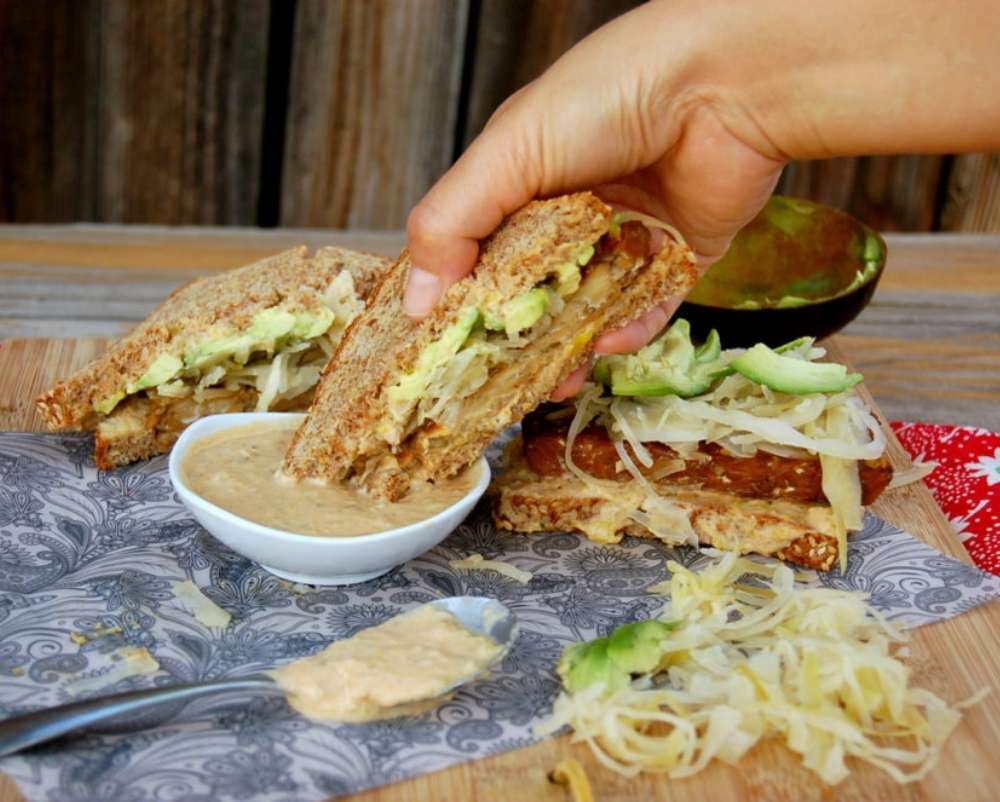



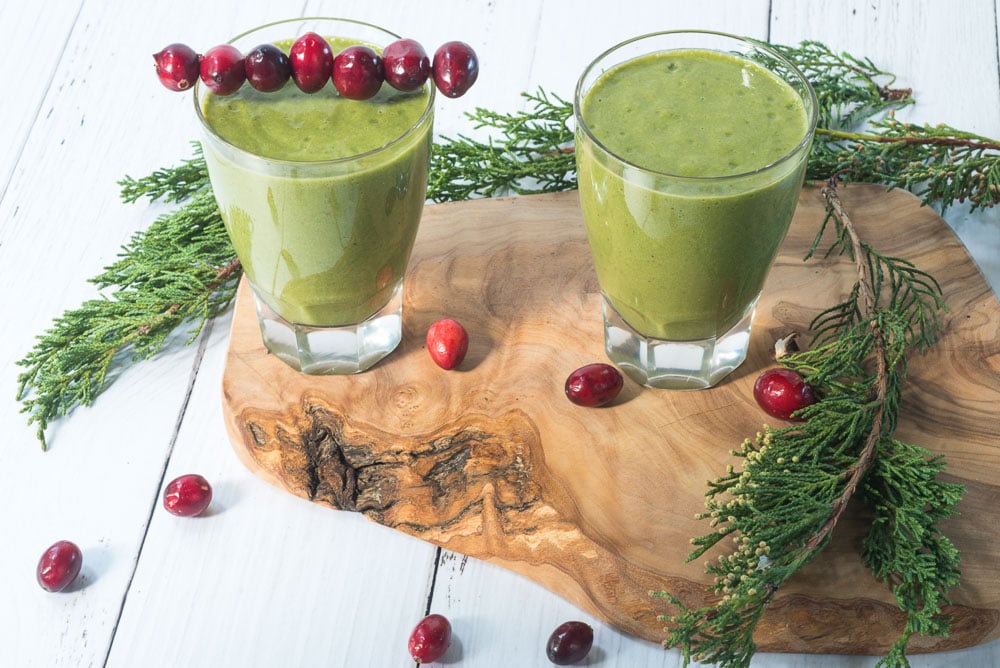




First rate research and article. Precise and to the point, thank you Lyndsey for taking the time to do the research and write an outstanding summary of the information you found on this important subject. Well Done!
Thank you, Nadine! Your kind words and appreciation mean so much.
Love the article – nice job on condensing and clarifying a complex and rather large topic 🙂 I would like to share this on my FB feed if that is okay? I have been arguing these issues for quite some time now – and I must say that I feel so much better within myself knowing that I am no longer contributing to the world destruction in quite such an emphatic way.
Also, the recipe – what if I could get fresh, off the vine, grape leaves? Would I just sub them straight in for the collard leaves, or is there some other process they need to go through?
Hi Rhixen! I would definitely love for you to share this in any way that you can. It is such a deeply important topic that everyone needs to understand.
I am not a recipe creator, but fresh grape leaves sound like an excellent idea. It’s certainly something I would love to eat!
Hi! This article is very informative, thank you for taking the time, energy and care to write and share it with everyone. We are all in crisis with this problem and we need every bit of effort and information we can get to turn this around! So please know what a good thing you are doing here. Also regarding the chard dolmas recipe, it sounds so good, cant wait to try it, but just one thing, cucumbers, though I really like them, it’s not a mutual thing. They really make my stomach feel awful so I dont eat them and I’m wondering if it would be almost as good subbing maybe zucchini or yellow squash instead? Actually that is my plan of action, but kind of really suggesting this for others who’s stomach’s cant deal with cucumbers. Lol. I think it’s a pretty common dilemma? I personally almost passed up the recipe because of the cucumbers but realized I could probably just sub something else. So I wanted to pass that thought on to others. Thanks for all that you ALL are doing here! I’m very impressed and appreciative as well.
Thank you, Donna! I appreciate your kind words on such a hard topic to write about.
I’m not sure about subbing out the cucumbers, but I would definitely try it and would love to know if it works!
Thanks Lyndsey for doing the reseach.
This is heartbreaking. There are so many nay-sayers. I’m happy to not eat meat, dairy, eggs (not quite 100%), especially when reading about all of this bad news. And we are making a difference in the number of people who are at least cutting down on their consumption. But fighting big corporations who don’t care about anything but their profits is huge!
Baby steps . . . .but do we have time?
Thank you so much Lyndsey, and the whole Dirty Team.
It’s because I randomly ran across your website that I started eating this way in Fall of 2017. And I feel so much better. You are all the BEST!
That’s wonderful, Ruth! I am so very glad that you are here with us.
Yes, it’s a difficult topic to read about but so important for us to understand in order to make better choices.
A fabulous article! Such an important subject. Well written – succinct and clear! Everyone should read it. Thanks Lyndsey 🙂
Thank you, Suzanne! Your kind words and appreciation mean the world to me!
Hi Lindsey, fabulous article! The environmental impact of what we eat is one of the reasons I went plant-based. Another important recent step in trying to shift this debate – and this behaviour change – into the mainstream, is this significant report released in January this year. It’s the report from the EAT-Lancet Commission on Food, Planet, Health, which brings together more than 30 world-leading scientists from across the globe to reach a scientific consensus that defines a healthy and sustainable diet. https://eatforum.org/eat-lancet-commission/
Thanks again for all your great articles.
Thank you, Liz! I am so glad you linked this additional information. Xoxo
Dead on Lyndsey! You broke down a very complex issue in a logical and concise way. Anyone, young people too, can digest every nugget you wrote for us. Thank you! I now feel armed with a simple yet complete set of points to use when a debate on this topic begins. And, it always does!
Hi Maureen! Thank you. It was a monster of a topic and took me quite a while to synthesize down into easily readable nuggets of information. I appreciate your kind words. Xoxo
Such a great article, thank you! Just shared on my OneGreenSmoothie Page! Thank you!!
I’m so very glad that you shared this piece! It’s such an important topic. Thank you.
Can’t wait to try these chard dolmas. I have plenty of chard in my garden and your recipe looks delicious. Thank you.
I hope you love them!
Awesome job growing your own chard!
xo Molly
This article is great! It’s very well organized and easy to understand.
I know you have the references at the bottom but I was wondering if it’d be possible to have them inline with the article as well, like as superscripted numbered links. The reason is that I would love to share this with people but I know people can be skeptical but also wont take the time to go through the references if they are not directly linked. Specifically looking for inline references of the ones with numbers, like the note about having just 60 years left for our topsoil.
I realize that it’s a tedious ask but I think it would go a long way in making skeptics take the issues seriously.
Thanks!
Hi Kayla!
I agree with what you’re saying, but I wanted this piece to specifically be super readable and not written in the manner of a scientific paper. I want anyone to be able to read it and not feel intimidated. By including the references at the bottom, that allows the piece to flow quickly. My whole intent and goal is for someone to read it all the way through and then hopefully want more answers and go research and read for themselves. Thank you so much for your great suggestion, though. Xoxo
dear Lyndsey and dear Molly ,I’m a person of few words and so what I’d like to say is LOVE to two magnificent PEOPLE.THANKS.
Hi Dora! Sometimes, a few words hit the spot!! Thank you. Xoxo
I’m so disappointed that a group that I’ve truly come to love and appreciate for the amazing food ideas, recipes, meal plans, and support has decided to make such a strong political statement. I, like a lot of people, don’t agree with these theories and ideas. Having them presented as absolute facts is frustrating because for every statement you make, I can provide a scientist/blog/article/org over here on the other side that will dispute it. That’s unfortunately how POLITICS works, and why I’m so sad and frustrated to see that this group, that until yesterday was a safe haven from this kind of nonsense, just forced me to vote with my pocketbook. I’m truly brokenhearted…
Excellent information and a well written piece. This is scary stuff and it is unfortunate that our lust for tasty things turns a blind eye to reality. I went WFPB for health but now I completely understand the broader global impact of our chosen American diet and am rightfully more concerned about the health of our planet than I am about my own personal health. Fortunately there is a solution for both. By shunning meat and diary, I’m doing my part for my health and also helping our planet, one less burger at a time. I have faith that at some point, humans will change and adapt to our planet’s needs. I’ll be gone by then and I can only hope that it will not be too late for our species when change does happen. More information like this piece written by Lyndsey help to drive the issue and generate deeper conversations.
Hi Dwight! I’m so glad that my words resonated with you. I also started a plant based way of eating for health and now I am able to see a more global impact. Thank you so much for your comment. Xoxo